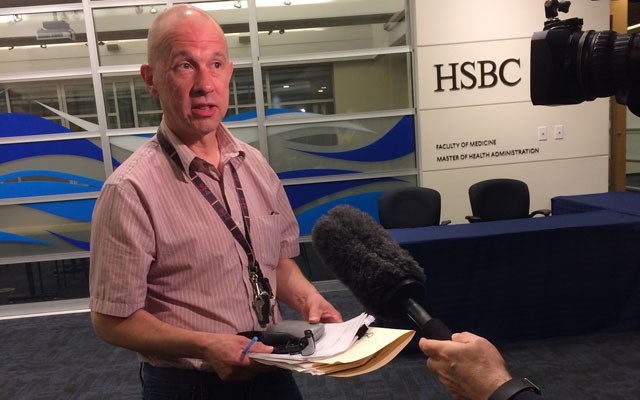Around 20 creditors and legal reps seeking clarity on the bankruptcy of the Pemberton Music Festival LP (PMFLP) attended a meeting where they heard a representative from trustee Ernst & Young (EY) read a preliminary report into the festival’s collapse.
And U.S. festival organizer Huka Entertainment did not come out of it looking good.
Kevin Brennan of EY ran through the business history of the festival, which he said was initiated by local investors approaching Huka in 2012 because it was experienced at festival creation.
But the festival lost money in every year of its operation — 2014, 2015 and 2016. The 2014 Pemberton Music Festival lost $16.9 million, which was funded in its entirety by Canadian investors.
In 2015, the festival lost $16.8 million, with investors questioning their losses and further involvement with Pemberton. They were placated by Huka promising increased ticket sales leading to breaking even, Brennan told creditors.
But in 2016, the festival incurred another operating loss of $14 million.
Tickets had just gone on sale for the 2017 event, which had been due to take place in July, when the plug was finally pulled.
Brennan ran through millions of dollars in losses, and requests by Huka for financial capital of millions from the main Canadian investors over the course of three festivals and into 2017. These promissory notes remain unpaid by Huka.
Huka has been paid $3.5 million in producers fees, Brennan said.
The meeting took place at the UBC Campus in Robson Square on Tuesday, June 6.
It took around an hour to unravel the labyrinthine situation left following the collapse of the festival on May 18; the meeting was chaired by representatives from Office of the Superintendent of Bankruptcy Canada.
Brennan said EY had received 109 ticket claims to date, and 145 claims in total, valued at approximately $13 million.
Canadian investor Jim Dales, who joined PMFLP in 2014 and is a secured investor in the bankruptcy proceedings, was present at the meeting but declined to speak about the situation or his losses.
Unsecured creditors in Pemberton, Squamish and Whistler owed more than $10,000 include 10 Eighty Production Technologies Inc. ($62,577.12), Carney’s Waste Systems ($36,664.28), AC Petroleum ($37,009.88), Festival Land Company ($13,064.90), Listel Whistler (doing business as) Bearfoot Bistro ($45,243.19), and the Pemberton Valley Inn ($12,000).
Community group Lil’wat Youth Soccer Association is owed $3,749.99.
Lewis Neilson of Vancouver-based Production Power Corporation, an unsecured creditor, attended the meeting.
Following the Ernst & Young presentation, he said his company had been contracted each year for the festival.
The firm supplied electricity and equipment to operate the Pemberton Music Festival site.
His company is now owed $55,000 and he said they did not expect to be paid.
“I think there will be nothing left. There are no assets to cover the liability — they owe roughly $13 million and have potentially $3 million,” he said.
“I expect that none of the unsecured creditors will get any money, Canada Revenue Agency (which as an unsecured creditor is owed $1,665,712.25) will get most of it.”
He said in his company’s case, they are not in danger of bankruptcy, but the loss is a significant one for a small company.
“It’s hard to take a $55,000 loss when you potentially only make $150,000 in profit a year.”
Neilson provided a detailed account of how Huka carried out business with him — it was the only company out of those mentioned in the bankruptcy proceeding that he dealt with.
One reason the annual losses were so high, Neilson said, is because Huka would bring in out-of-town — typically American — suppliers to Pemberton. For example, his company would normally supply electricity from BC Hydro, but not in this case at Pemberton.
“Because (Huka are) American producers they insisted in bring in their own generators. They didn’t trust our local utility,” Neilson explained.
“So they spent probably three times what they should have spent bring up generators from Los Angeles. No one here was good enough to do the job for them.”
He added that Huka did this with Pemberton Music Festival’s staging, security and other necessities needed to build the festival.
“That fact that they’re $16 million in the hole is self-caused. No one did this to them, they did this to themselves. It ran them into constant debt year after year and they never recovered,” Neilson said.
He added that even when he did get paid by Huka, they were late with payment each year, providing half during the festival in July and the remaining half the following February.
For the full story, including more on investors, read Pique Newsmagazine on Thursday, June 8, or visit www.piquenewsmagazine.com.




